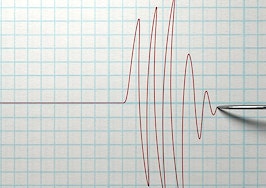- Open a business bank account if you don't already have one, and use your business check card to pay for all business expenses.
- Keep track of receipts throughout the year with photos in Evernote.
- Use your calendar to track mileage for deductions.
By law I cannot give tax advice — nor should I, considering I refuse to use traditional accounting software or the various apps available for tracking business expenses.
I use simple systems that take advantage of the data created when I spend money to almost effortlessly capture expenses.
Our tax system is ridiculously complicated, and I have heard tales of real estate agent productivity dropping during tax time and that some real estate professionals cannot pay their income taxes because they failed to set aside funds from each check.
Some have to search for receipts and documentation that only capture a few deductions.
My systems — or “hacks,” as I like to call them — are not designed to replace accounting for huge real estate empires, companies and corporations, but are designed for the small-business owner, independent contractor or micro-entrepreneur.
When tax time comes, I sail through it with the greatest of ease by harvesting data.
I don’t actually “do” my own taxes but instead pay a small company in my neighborhood to do all the work while I am out selling real estate. Clues as to what might be a tax deduction can be found on the IRS website. (Inman also has a checklist.)
Now is a great time to set up a system for 2017 and to consult your tax adviser. Here are some simple record-keeping ideas from a fellow self-employed tax payer:
1. It all starts with a bank account
All my business expenses — every single one of them — is paid through my business checking account using a check card whenever possible.
If I do not have the funds immediately available, I use my business credit card.
The credit card is used for major business purchases and business travel and for those times when the big bill comes before the big check, which can happen to any real estate tycoon.
I pay the charges to the card by transferring money from business checking.
At the end of the year, I can import all transactions in my checking account to an Excel spreadsheet and do a simple sort and subtotal to capture most of my tax deductions.
If I did not know how to use a spreadsheet, I could still sort them and add them up online.
Some people like to import checking account transactions into a tax software program — I am not one of those people.
My systems only work for people who use electronic-type payments with plastic cards. There are people who like to use paper checks and cash, and they have lots reasons.
2. Evernote for receipts and invoices and other useful information
I have every receipt for every business expense for the year. They are all in Evernote in a folder called “tax20XX.”
I have a folder for every year. I take a photo of every receipt as soon as I get it. I forward receipts that I get via email into my Evernote tax folder.
Sometimes I use screen prints of items I bought online with the amount I paid. I use the tag “receipt.”
If I had lunch, drinks or coffee with a client, I photograph that receipt after I scribble the client’s name on it. I also have the lunch on my calendar with a time and address and purpose for the “meeting.”
I often pay parking meters for my clients and for myself when I show them downtown condos. I use an app on my phone to pay the meter, and my business check card pays the charges. The app keeps a running total and there is a record in the checking account.
Receipts that I capture and put in Evernote are rarely used to determine the amount of an expense because that is already in my checking account and will eventually be sorted and added in my year-end expense spreadsheet.
I use the pictures of receipts as a substitute for the fat envelope or shoe box filled with paper receipts.
If I need to figure out what a charge in my checking account was for, I can quickly match it up by date with a receipt by searching Evernote.
3. Mileage goes on my calendar
Every time I go anywhere for business, there is a time and an address on my calendar.
When I show houses, I use reports in ShowingTime to calculate my miles. There is a record of where I started and in which order I showed the houses.
Without fail, at the end of each month I add up my total miles and add them to a table I have built in Evernote that has a spot for each month. It takes me less than an hour each month.
I also keep a copy of the calendar in Evernote as a backup. Any other tax-deductible automobile expenses will show up in my banking records with receipts in Evernote.
My taxes will be ready to be filed long before the deadline.
My data is backed up and in the cloud. I have almost no paper to lose and can find my records. I can easily capture expenses.
Make your 2017 just a little easier by setting up your tax system in 2016.
Teresa Boardman is a Realtor and broker/owner of Boardman Realty in St. Paul. She is also the founder of StPaulRealEstateBlog.com.







